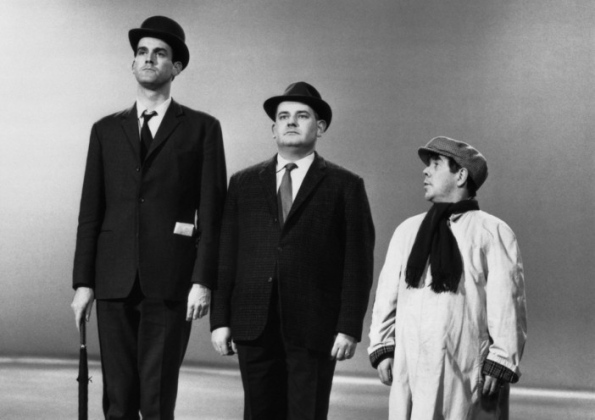As hard as it may be to believe, a new study shows that your iPhone consumes as much energy in a year as your refrigerator!
The study is called “The Cloud Begins With Coal,” and in it, CEO of Digital Power Group Mark Mills claims that the average iPhone uses about 361 kWh per year. That includes data usage, charging the battery, and cloud connections. A mid-sized refrigerator only uses 322 KWh per year. Who would’ve thought?
You see, smartphones like the iPhone don’t require a huge amount of energy to charge, but playing games for an average of an hour a week for an entire year can consume more energy that TWO fridges (and let’s face it – everyone has a bit of an addiction to Angry Birds or Words With Friends). The biggest energy guzzlers are the background cloud connections like GPS tracking and Wi-Fi. So even if you don’t have a penchant for playing games, your iPhone is being drained faster than a bathtub.
Nowadays, computers are forced to run around the clock. They service our technical support needs. Our climate control needs. Our banking needs. Pretty much every need, really.
Mills’ study found that the global Information-Communications-Technologies system (or ICT, which encompasses all tech-based companies) consumes a total of 1,500 tWh of electricity per year. That’s equivalent to Germany and Japan’s electricity production COMBINED! In fact, the ICT uses about 10% of all the electricity generated on Earth. (That’s enough to power the planet since 1985…)
“As the world continues to electrify, migrating towards one refrigerator per household, it also evolves towards several smartphones and equivalent per person,” writes Mills. And what’s worse is that as devices become more powerful, they’ll require more energy. “Trends now promise faster, not slower, growth in ICT energy use.”
Cloud connections and mobile Internet require more energy than wired networks, and let’s be honest – the world is going wireless. All of this technological advancement is eating away at our planet like a virus.
And the source of that virus? Our dependency on dirty coal.
Coal remains the choice source of electricity production in developed countries like the U.S. Mills’ study, which was sponsored by the American Coalition for Clean Coal Electricity and the National Mining Association, contends that coal is essential to powering the ICT system. Our phones will always need batteries, and our lights will always need plugs, after all.
Innovations in green energy grids and higher efficiency standards have provided a good starting off point for change, but until the energy industry takes a long hard look in the mirror, the problem’s only going to get worse.
NRGLab thinks we can still expand cloud connections and smartphone capabilities without sacrificing the integrity of our environment with carbon-free, renewable sources of electricity like the SH-Box. The SH-Box turns geothermal heat into clean, read-to-use electricity. So forget about installing expensive solar panels. Forget about building an 18th Century windmill in your back yard. Forget everything you thought you knew about energy – and start thinking about the SH-Box.
For more information, visit nrglab.asia. See what we’re doing to protect the planet from mankind’s hubris.
Showing posts with label study. Show all posts
Showing posts with label study. Show all posts
Friday, August 16, 2013
Thursday, April 4, 2013
The New Class System
The global economic crisis has uprooted the traditional class system, according to a recent British study. Gone is the idea of a three-tier -- upper, middle, and working class -- designation. Modern society has become a cornucopia of identities.
The study was conducted by professor Fiona Devine and a team of sociologists at Manchester University. Devine discovered that the British social stratosphere contains such denominations as "emergent service workers" and the "technical middle class." Seven total, up from three.
Experts contribute the paradigm shift to fluctuations and changes in the global economy. Tradesmen with specific skill-sets now earn more money than undervalued and ill-experienced college graduates. The income dynamic has led many to seek secondary-educational opportunities (i.e. tech schools that offer specific skills) in order to stay competitive in the job market.
Backed by the BBC, Devine surveyed over 160,000 people about their background, level of education, income, lifestyle, and ambitions for the future.
According to Devine: "Many people think that the problem of social and cultural engagement is more marked in poorer class groups, but the survey shows that our levels of social and cultural capital don’t always mirror our economic success."
Affluent households no longer take pleasure in traditional "middle class" activities, the survey found.
“The ‘technical middle class’ score low for social and cultural capital, but are quite well off," said Devine. "While the ‘emergent service workers’ score highly for cultural and social capital but are not very prosperous.”
A person's occupation no longer dictates his or her social standing. In fact, the social landscape is just about as complex as our economy, which relies on a network of seemingly indeterminable variables that ebb and flow like a river. How much we make doesn't seem to translate into specific entertainment choices anymore, either. Instead, the economic crisis has, in a sense, leveled the playing field by creating a diverse spectrum of individuals comfortable with the quality of their lives.
As this new class system solidifies, people will have unheralded opportunities to invest in their aspirations. One of ours at NRGLab has been to bring affordable energy to the developing world. But we can't do it alone. We need other visionaries to help bring our dream to fruition. If you consider yourself a visionary, visit our website at nrglab.asia and learn more about how you can become a part of NRGLab's exclusive Research Council.
Subscribe to:
Posts (Atom)



